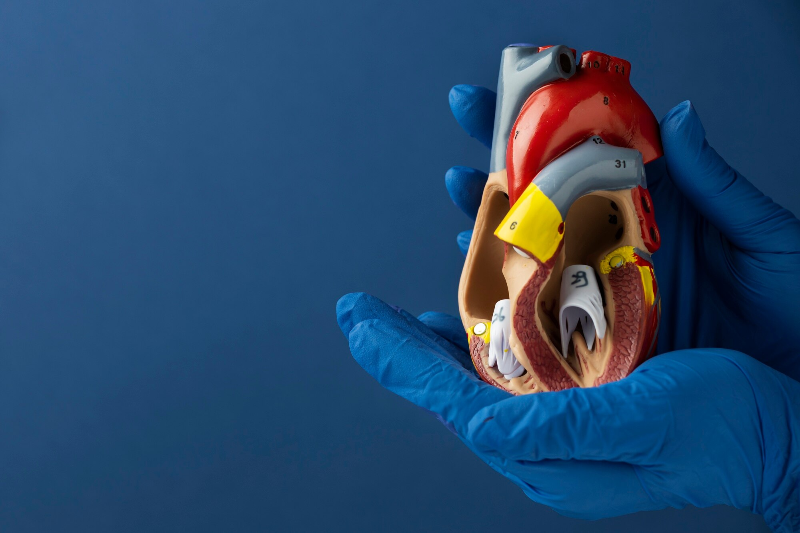by Jacqueline Mitchell, Beth Israel Deaconess Medical Center
Credit: Andrea Piacquadio from Pexels
Exercise testing can serve as a powerful physiologic probe to unmask subclinical cardiovascular abnormalities well before disease onset. For example, blood pressure changes during exercise (EBP) can reveal a latent tendency toward future development of hypertension. At present, there is no reliable circulating biomarker—a protein or other molecule present in the blood stream—indicative of hypertension risk.
Investigators at Beth Israel Deaconess Medical Center (BIDMC) identified unique circulating proteins that reflect EBP, and that may in turn be early indicators of future risk of hypertension. Led by Robert E. Gerszten, MD, director of BIDMC's nationally recognized Program in Personal Genomics and Cardiometabolic Disease; Jeremy Robbins, MD; and Mark Sarzynski, Ph.D., the scientists performed large-scale proteomic profiling and EBP measurements among 681 healthy adults who underwent cardiopulmonary exercise testing before and after 20 weeks of endurance exercise training.
The study team, including lead author Prashant Rao, MBBS, identified 37 proteins associated with EBP, many of which would not have been identified through profiling resting BP alone. Several of these proteins were relevant to vascular biology.
The investigators demonstrated that the EBP-associated plasma protein known as TGFBR3 is a novel circulating biomarker associated with a lower risk of incident hypertension. Genetically predicted levels of this plasma protein were inversely associated with future hypertension risk in a diverse population and may protect against the development of CVD. This work may help in determining which patients might benefit from early clinical interventions to reduce the impact of cardiovascular disease.
The research is published in the journal JAMA Cardiology.
More information: Prashant Rao et al, Plasma Proteomics of Exercise Blood Pressure and Incident Hypertension, JAMA Cardiology (2024). DOI: 10.1001/jamacardio.2024.1397
Journal information: JAMA Cardiology
Provided by Beth Israel Deaconess Medical Center







Post comments